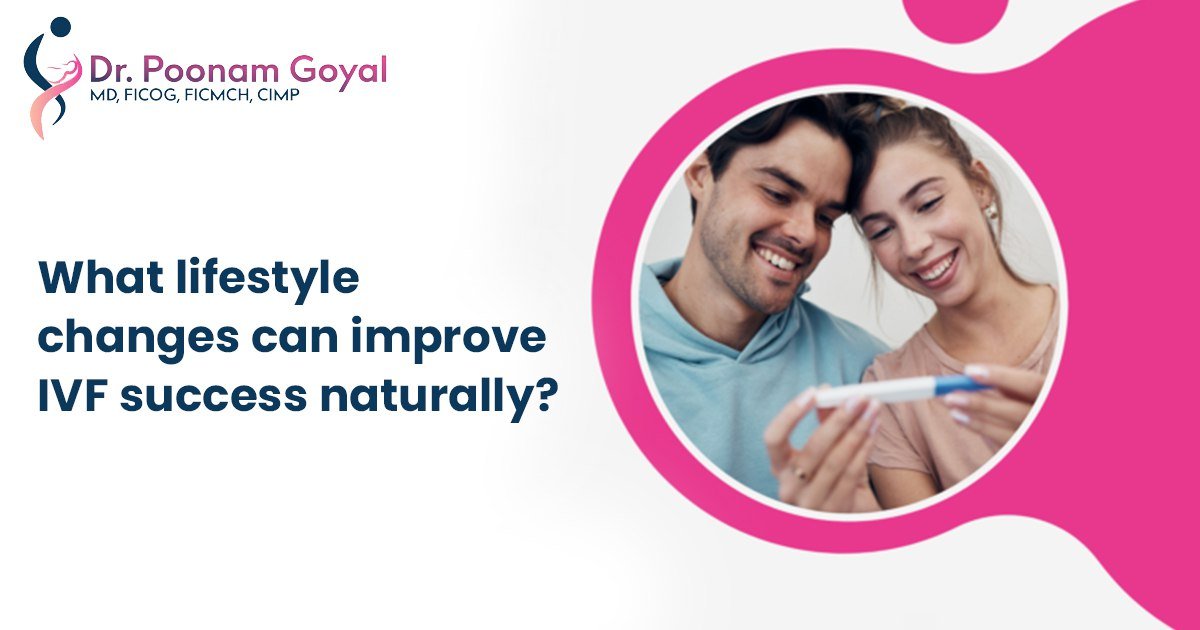
In-vitro fertilization (IVF) is a life-changing journey for couples dreaming of parenthood. While medical technology plays a significant role, many people underestimate the power of natural lifestyle changes in enhancing IVF success rates. If you are preparing for IVF or have already started the process, adopting a healthy and balanced lifestyle can positively impact your fertility outcomes. Here are some natural lifestyle changes that can improve your chances of a successful IVF journey.
Both underweight and overweight conditions can interfere with hormonal balance and ovulation. Body mass index (BMI) between 18.5 and 24.9 is considered ideal for fertility. Excess fat can produce more estrogen, affecting egg quality and embryo implantation. Likewise, being too thin can reduce estrogen production, making the uterus less receptive.
Tip: Include moderate physical activity like walking, yoga, or swimming for at least 30 minutes daily. Avoid intense workouts that may disrupt your menstrual cycle.
Your diet directly affects your reproductive health. A well-balanced meal plan rich in folic acid, iron, antioxidants, omega-3 fatty acids, and protein supports egg and sperm health, hormonal regulation, and uterine lining thickness.
Include:
Avoid:
IVF can be emotionally overwhelming. High stress levels increase cortisol, which can disrupt hormonal balance and reduce your chances of conception.
Natural stress-relieving techniques:
A calm and relaxed mind creates a better internal environment for embryo implantation.
Quality sleep plays a vital role in hormone regulation and overall reproductive health. Women undergoing IVF should aim for at least 7 to 9 hours of uninterrupted sleep every night. Disrupted sleep cycles can affect melatonin and estrogen levels, impacting egg maturation and embryo quality.
Maintain a consistent bedtime, avoid screens before sleep, and create a dark, quiet sleeping environment to improve your sleep hygiene.
Smoking affects both male and female fertility by damaging eggs, sperm, and DNA. It can also reduce the success rate of IVF and increase miscarriage risk. Likewise, excessive alcohol intake can affect hormone levels and embryo development.
If you are planning IVF, it's best to quit smoking and reduce alcohol consumption at least 3 months before beginning the process.
Adequate hydration improves blood flow to reproductive organs and helps the body eliminate toxins. Drinking at least 8 to 10 glasses of water daily supports hormonal function, egg health, and cervical mucus production, all crucial for IVF success.
Add detoxifying foods like cucumber, lemon, turmeric, and green tea (in moderation) to your diet for additional benefits.
Fertility is a shared journey. Male partners should also focus on improving sperm quality through healthy habits like eating antioxidant-rich foods, staying active, avoiding smoking/alcohol, and reducing heat exposure to the testicular area.
According to Dr. Poonam Goyal, a leading fertility expert, couples who commit to these lifestyle modifications before and during IVF cycles often experience improved success rates and healthier pregnancies. Personalized guidance from your fertility specialist can help tailor these changes to suit your body’s unique needs.
IVF success is not just about medical intervention. By nurturing your body and mind through conscious lifestyle changes, you can enhance your fertility naturally and create the right foundation for a successful pregnancy. Remember, even small steps like switching to a healthier diet, getting better sleep, or managing stress can make a significant difference in your IVF journey.
Q1. How early should I make lifestyle changes before IVF?
Ideally, start at least 3 to 6 months before your IVF cycle to allow your body time to respond to changes.
Q2. Can lifestyle changes alone improve IVF outcomes?
While they can't guarantee success, lifestyle changes significantly enhance your body’s readiness and support overall treatment effectiveness.
Q3. Are there specific Indian diets recommended for IVF?
Yes, a traditional Indian fertility diet rich in lentils, ghee, dairy, seasonal fruits, and whole grains is beneficial. Avoid overly spicy or fried foods.
Q4. Can stress alone cause IVF failure?
Chronic stress can disrupt hormonal balance, making it harder for embryos to implant. Managing stress is essential for IVF success.
Q5. Should male partners follow the same lifestyle changes?
Absolutely! Male fertility plays a vital role. A healthy lifestyle helps improve sperm count, motility, and morphology.